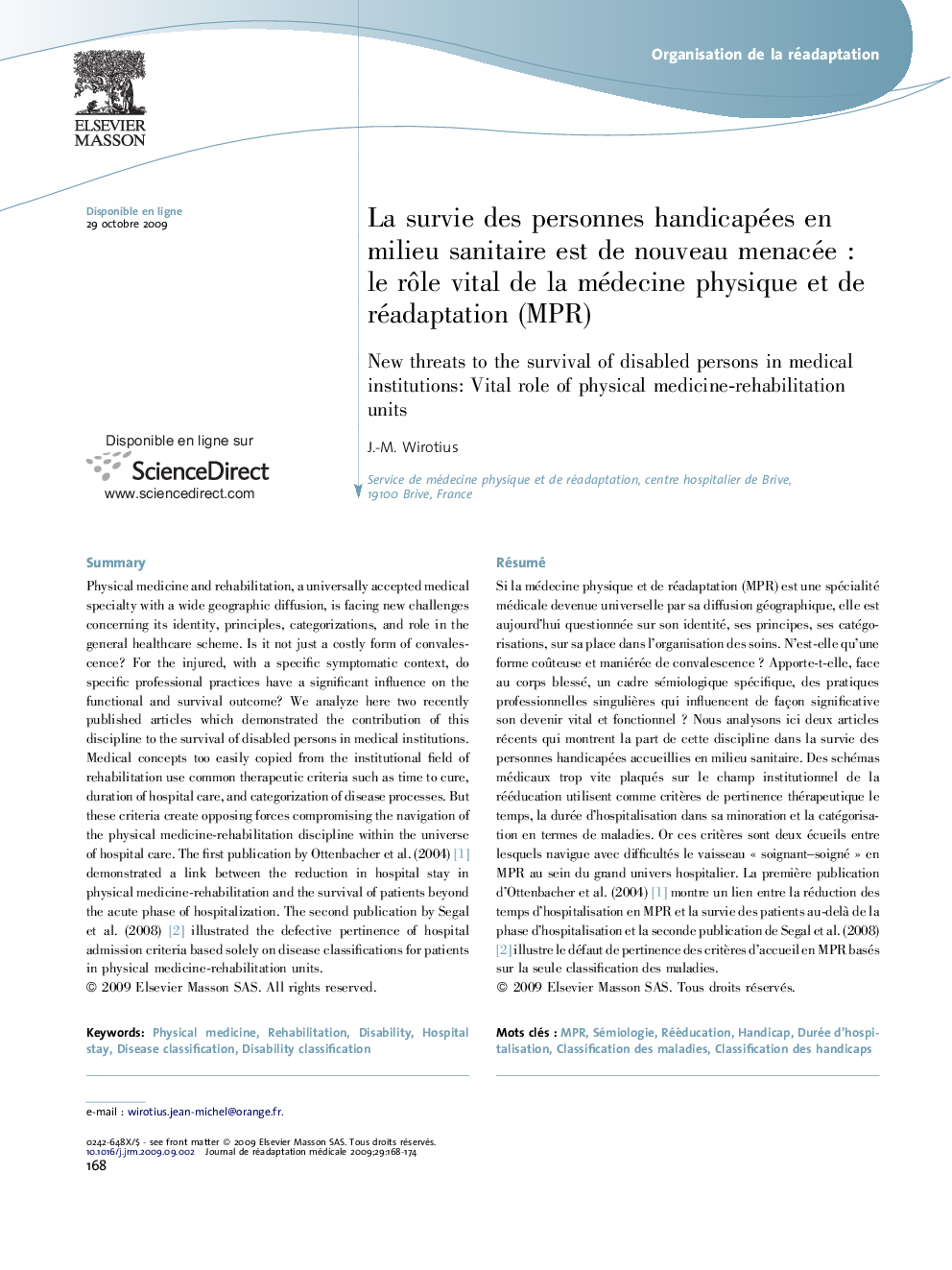| Article ID | Journal | Published Year | Pages | File Type |
|---|---|---|---|---|
| 2706310 | Journal de Réadaptation Médicale : Pratique et Formation en Médecine Physique et de Réadaptation | 2009 | 7 Pages |
Abstract
Physical medicine and rehabilitation, a universally accepted medical specialty with a wide geographic diffusion, is facing new challenges concerning its identity, principles, categorizations, and role in the general healthcare scheme. Is it not just a costly form of convalescence? For the injured, with a specific symptomatic context, do specific professional practices have a significant influence on the functional and survival outcome? We analyze here two recently published articles which demonstrated the contribution of this discipline to the survival of disabled persons in medical institutions. Medical concepts too easily copied from the institutional field of rehabilitation use common therapeutic criteria such as time to cure, duration of hospital care, and categorization of disease processes. But these criteria create opposing forces compromising the navigation of the physical medicine-rehabilitation discipline within the universe of hospital care. The first publication by Ottenbacher et al. (2004) [1] demonstrated a link between the reduction in hospital stay in physical medicine-rehabilitation and the survival of patients beyond the acute phase of hospitalization. The second publication by Segal et al. (2008) [2] illustrated the defective pertinence of hospital admission criteria based solely on disease classifications for patients in physical medicine-rehabilitation units.
Keywords
Related Topics
Health Sciences
Medicine and Dentistry
Orthopedics, Sports Medicine and Rehabilitation
Authors
J.-M. Wirotius,
